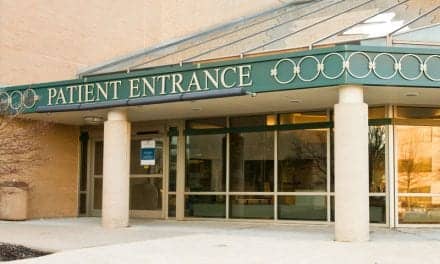David F. Dinges, PhD, chief of the division of Sleep and Chronobiology, and director of the Unit for Experimental Psychiatry in the Perelman School of Medicine at the University of Pennsylvania, has received the Nathaniel Kleitman Distinguished Service Award from the American Academy of Sleep Medicine.
Started in 1981, the Nathaniel Kleitman Distinguished Service Award recognizes individuals dedicated to the sleep field who have made significant contributions in the areas of administration, public relations, and government affairs. The award’s namesake led innovative research on REM sleep, circadian rhythms, and the effect of drugs on sleep.
Through his sleep and chronobiology laboratory at the Hospital of the University of Pennsylvania, Dinges has published extensive federally funded seminal research on the acute, chronic, and cumulative effects of sleep restriction and how sleep need and circadian biology interact to influence physiological and neurobehavioral functions in healthy adults.
“It is a tremendous honor to be recognized among those who have not only dedicated their careers to advancing sleep research, but also whose findings have contributed to the health and safety of the nation,” Dinges says in a release. “Over the last few decades, we have uncovered new insights on how to identify and mitigate the deficits incurred from inadequate sleep, and how to apply that knowledge to prevention and mitigation of human error and catastrophe.”
Dinges was recognized during the plenary session of SLEEP 2017.
Dinges is a professor and vice chair for faculty affairs and professional development in the department of Psychiatry at the Perelman School of Medicine. He has contributed extensively to public discussions and policies related to identifying and preventing the risks posed by inadequate sleep, through his public service for the National Institutes of Health, National Research Council, Institute of Medicine, and numerous federal agencies concerned with fatigue related accidents, errors and catastrophes.
He has published more than 300 scholarly articles that have facilitated public health recommendations, public policies pertaining to prevention and detection of fatigue, and standards related to duty hours in safety-sensitive occupations, including astronauts, pilots, healthcare professionals, commercial drivers, and first responders. He created and validated the psychomotor vigilance test, one of the most widely used assessments for behavioral alertness pertaining to sleep need and circadian timing.
Beyond his Penn roles, Dinges has served as the editor-in-chief of SLEEP; president of both the World Sleep Federation and of the U.S. Sleep Research Society; as well as on the board of directors of the American Academy of Sleep Medicine and National Sleep Foundation. He is also a scientific team leader for the National Space Biomedical Research Institute and an elected member of the International Academy of Astronautics.
Among numerous other honors, Dinges received the 2001 Mark O. Hatfield Public Policy or Advocacy Award from the American Academy of Sleep Medicine; the 2004 Decade of Behavior Research Award from the American Psychological Association; the 2007 NASA Distinguished Public Service Medal, the highest honor NASA awards to a non-Government employee; the 2009 Raymond F. Longacre Award for Outstanding Accomplishment in the Psychological and Psychiatric Aspects of Aerospace Medicine from the Aerospace Medical Association, and the 2016 Pioneer Award from the National Space Biomedical Research Institute.




